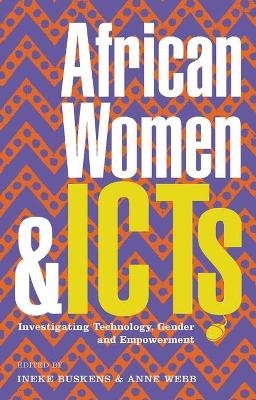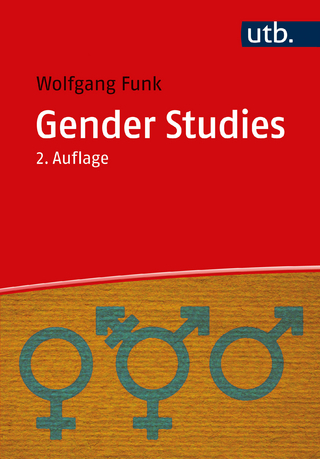
African Women and ICTs
Zed Books Ltd (Verlag)
978-1-84813-192-7 (ISBN)
The revolution in information and communication technologies (ICTs) has vast implications for the developing world, but what tangible benefits has it bought, when issues of social inclusion and exclusion, particularly in the developing world, remain at large? In addition, the gender digital divide is growing in the developing world, particularly in Africa - so what does ICT mean to African women?
African Women and ICTs explores the ways in which women in Africa utilize ICTs to facilitate their empowerment; whether through the mobile village phone business, through internet use, or through new career and ICT employment opportunities. Based on the outcome of a extensive research project, this timely books features chapters based on original primary field research undertaken by academics and activists who have investigated situations within their own communities and countries. The discussion includes such issues as the notion of ICTs for empowerment and as agents of change, ICTs in the fight against gender-based violence, and how ICTs could be used to re-conceptualize public and private spaces.
ICT policy is currently being made and implemented all over Africa, but the authors argue that this is happening mostly in the absence of clear knowledge about the ways gender inequality and ICTs are impacting each other and that by becoming alert to a gender dimension in ICT developments at an early stage of the information revolution, we may be able to prevent greater scaled undesirable effects in the future.
Ineke Buskens is a Cultural Anthropologist with a passion for research methodology and women’s empowerment and a deep appreciation for cultural diversity and individual human uniqueness. Graduated in Leiden, the Netherlands, she has lived in Ghana, India, and Brazil and since 1990 she has lived in South Africa. After having been Head of the Centre for Research Methodology at South Africa’s Human Science Research Council for 5 years, she founded Research For the Future in 1996. Ineke works as an independent international research and process facilitation consultant. In her research she focuses on emancipatory approaches that envision a sustainable, just and loving world; in her research training on bringing out the genius in every participant; in her facilitation work, on gender awareness and authentic collaboration. Ineke is a student of Ramtha’s School of Enlightenment in Yelm, Washington, USA and this learning journey inspires her to become all she can be. Anne Webb's commitment to feminist qualitative research is rooted in participatory action research approaches. She has worked with communities and research teams for the past fifteen years pursuing the reduction of inequalities. Trained in sociology, adult education and gender studies in Toronto (Ontario Institute for Studies in Education) and Den Hague (Institute for Social Studies), her education has involved people from all walks of life and locations, formally and informally, in Canada, Europe and Southern Africa, and is a continually enriching process. Anne currently resides in Hull, Quebec, Canada.
Acknowledgements
Notes on contributors
Preface
Introduction - Ineke Buskens and Anne Webb
1. Doing research with women for the purpose of transformation - Ineke Buskens
Part I: ICT tools: Access and Use
2. Women's use of information and communication technologies in Mozambique: A tool for empowerment? - Gertrudes Macueve, Judite Mandlate, Lucia Ginger, Polly Gaster and Esselina Macome
3. Considering ICT use when energy access is not secured: A case study from rural South Africa - Jocelyn Muller
4. Women's use of cell phones to meet their communication needs - A study of rural women from northern Nigeria - Kazanka Comfort and John Dada
5. Egyptian women artisans facing the demands of modern markets: Caught between a rock and a hard place - Leila Hassanin
Part II: Female Only ICT Spaces: Perceptions and Practices
6. When a gender-blind access policy results in discrimination: Realities and perceptions of female students at the University of Zimbabwe - Buhle Mbambo-Thata, Elizabeth Mlambo, Precious Mwatsiya
7. An alternative public space for women: The potential of ICTs - Leila Hassanin
8. Using ICTs to act on hope and commitment: The fight against gender violence in Morocco - Amina Tafnout and Aatifa Timjerdine
9. The names in your address book: Are mobile phone networks effective in advocating for women's rights in Zambia? - Kiss Abraham
Part III: Using ICTs: Making Life Better?
10. Mobile phones in a time of modernity: The quest for increased self-sufficiency amongst women fishmonger and fish processors in Dakar - Ibou Sane and Mamadou Balla Traore
11. Women entrepreneurs in Nairobi: Examining and contextualizing women's choices - Alice Wanjira Munyua
12. Internet use among women entrepreneurs in the textile sector in Douala, Cameroon: self-taught and independent - Gisele Yitamben and Elise Tchinda
13. ICTs as an agent of change: A case of grassroots women entrepreneurs in Uganda - Susan Bakesha, Angela Nakafeero and Dorothy Okello
14. The mobile pay phone business: A vehicle for rural women's empowerment in Uganda - Grace Bantebya-Kyomuhendo
Part IV: Creating New Realities
15. Professional women empowered to succeed in Kenya's ICT sector - Okwach Abagi, Olive Sifuna, Salome Awuor Omamo
16. Reflections on the mentoring experiences of ICT career women in Nairobi, Kenya: Looking in the mirror - Salome Awuor Omamo
17. Our journey to empowerment: The role of ICT - Ruth Meena and Mary Rusimbi
Epilogue - Ineke Buskens and Anne Webb
| Erscheint lt. Verlag | 16.4.2009 |
|---|---|
| Co-Autor | Angela Nakafeero, Dorothy Okello, Kazanka Comfort, Judite Mandlate, Grace Bantebya Kyomuhendo |
| Sprache | englisch |
| Maße | 138 x 216 mm |
| Themenwelt | Sozialwissenschaften ► Soziologie ► Gender Studies |
| ISBN-10 | 1-84813-192-5 / 1848131925 |
| ISBN-13 | 978-1-84813-192-7 / 9781848131927 |
| Zustand | Neuware |
| Haben Sie eine Frage zum Produkt? |
aus dem Bereich


